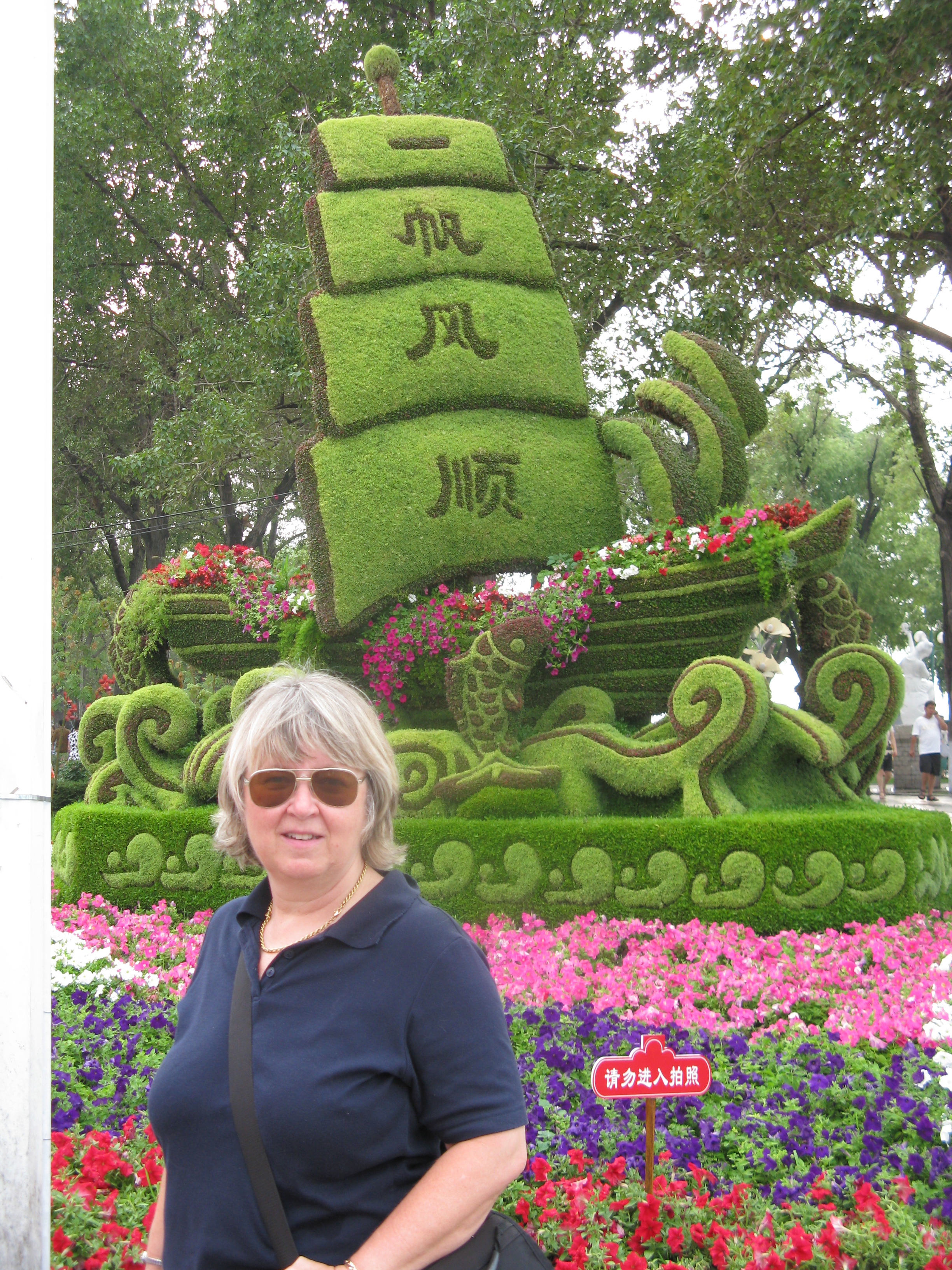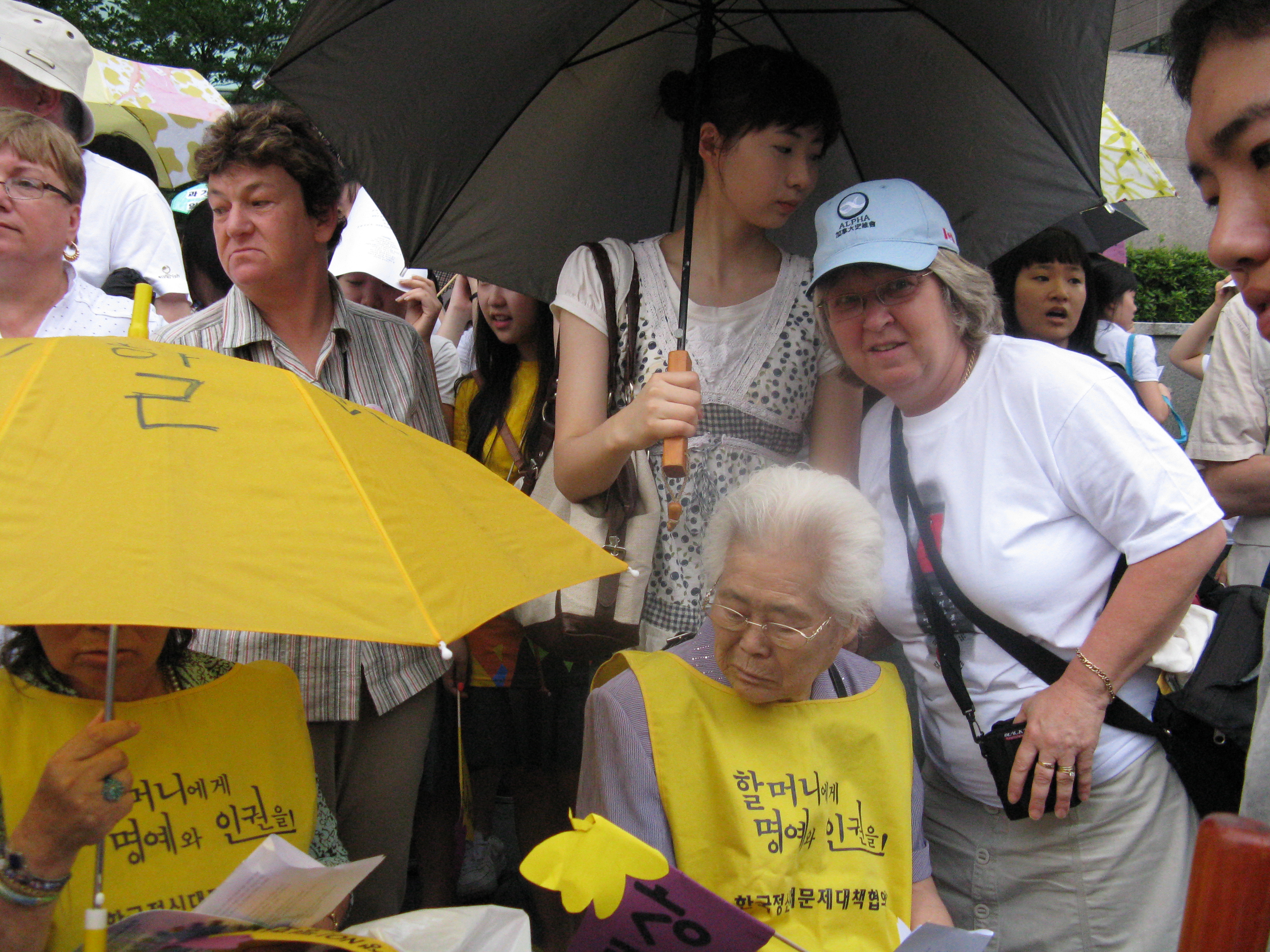
Ms. Whelan's Trip: ASIA
Ms. Whelan
For the first two weeks of July, I got to be a history student. Along with thirty other Canadian teachers, I participated in the Peace & Reconciliation study tour of China and Korea, a trip sponsored by the Toronto Chapter of ALPHA, a Chinese-Canadian organization dedicated to the learning and preservation of Asian history. Ours was a study of the World War II Japanese invasion of China and Korea and thus we visited four cities, each with a different study focus.
In Shanghai, we attended lectures by leading Chinese professors and human rights lawyers and studied how World War II treaties, international diplomacy and various court cases have allowed Japan to avoid accepting responsibility and neither apologize to nor compensate the many victims of injustice. The highlight in Shanghai was hearing the heart-wrenching testimony of a survivor of the Japanese sexual slavery system. Grandma Tan was called a “comfort woman” (what a cruel description!) and who told of her capture and torture and fears at age 16. Grandma Tan was accompanied by her 40 year old son who admitted to us that he had just heard his mother’s sad story only two weeks previous to our visit.
Next on our tour was the City of Nanjing. For seven weeks beginning in December 1937, Japanese soldiers butchered over 300,000 Chinese women, men and children. (I would highly recommend Iris Chang’s book The Rape of Nanking for a readable description of this horrid, and now largely forgotten event.). The Nanjing Massacre Museum was, ironically, built on a previously unknown massacre site; some of the bodies are visible where they were dumped. The two survivors of the massacre who talked with us had no difficulty showing their hatred and anger and demand for an apology.

The study group then flew to the City of Harbin in Manchuria where the focus was on Unit 731, one of the Japanese laboratories experimenting with biological and chemical warfare. There were, obviously, no survivors of the beastly dissections and inoculations of plague and other diseases, but we did hear stories from two men who, in 1974, accidentally handled one of the many Japanese chemical bombs still buried in the Chinese countryside. They talked of their chemically-induced illnesses and how their families’ lives have been forever affected.
Our last city to visit was Seoul, South Korea, a Japanese colony from 1910. Once again we heard the sad stories of the Korean “comfort” women, many of whom were never reunited with their families. Some of the Korean comfort women now live together in the House of Sharing and they invited us to dine with them one evening and listen to their stories. Every Wednesday since 1992, these Grandmas have demonstrated in front of the Japanese embassy demanding an apology and redress; it was a privilege to join their demonstration on the final day of our study tour.

Beyond the lectures and museum visits, I did have the chance to experience Chinese and Korean culture–the food, the streets crowded with people and bicycles and automobiles, the Buddhist temples, early mornings in the parks where seniors practise their tai-chi and bring their birds to “converse”, and the washroom squats. Bartering for souvenirs in the markets was a challenge for me, but fun. (It’s great to actually want to buy souvenirs made in China and Korea!) Booming cities like Shanghai are an architect’s dream. I climbed the 392 steps to Dr.Sun Yat Sen’s mausoleum, took a gondola ride in the Purple Mountains overlooking Nanjing, stood on cliffs overlooking the mighty Yangtse River, lit a traditional Chinese lantern wishing goodluck and happiness to family and friends, and attended a martial arts performance.
I am somewhat embarrassed to admit how little I knew of this horrid chapter in World War II history. I feel incredibly honoured to have been able to participate in this learning experience. It is sad to realize that so many in China and Korea are victims of the Second World War and that so many others throughout the world suffer such human rights abuses. We are so very fortunate to live in a country like Canada.